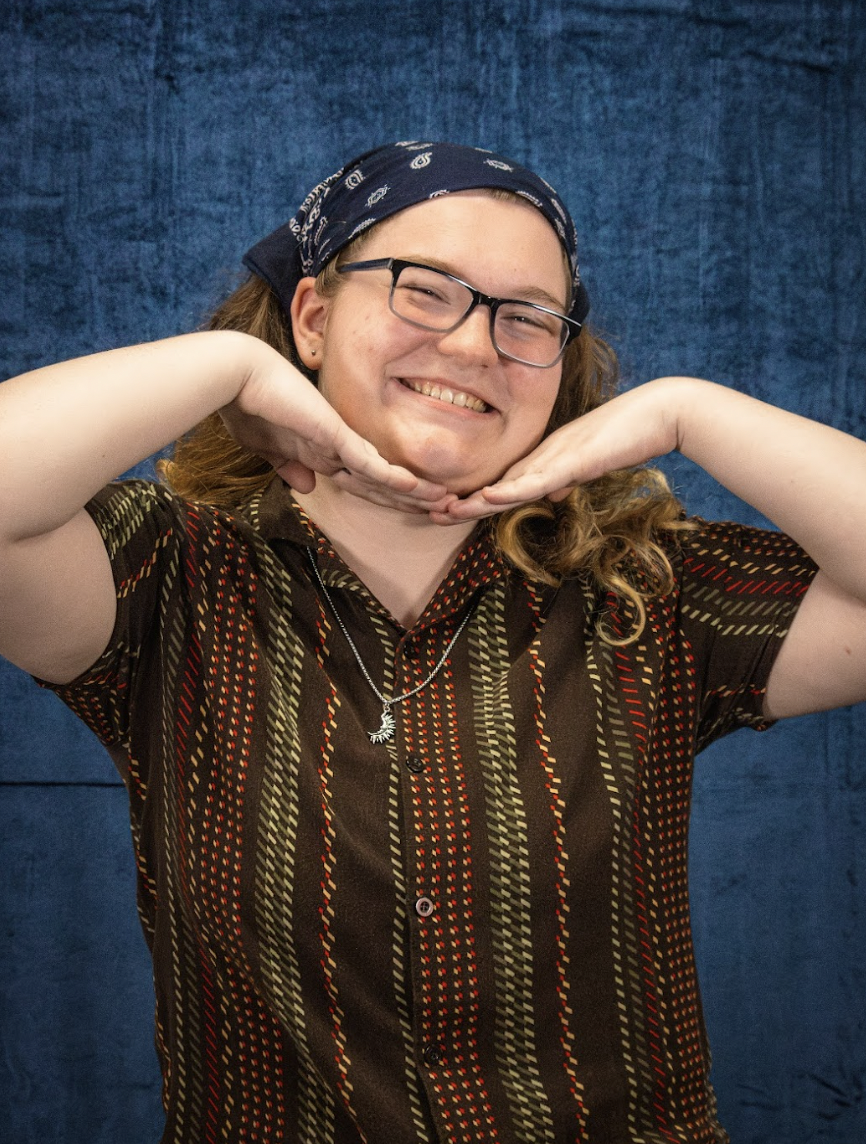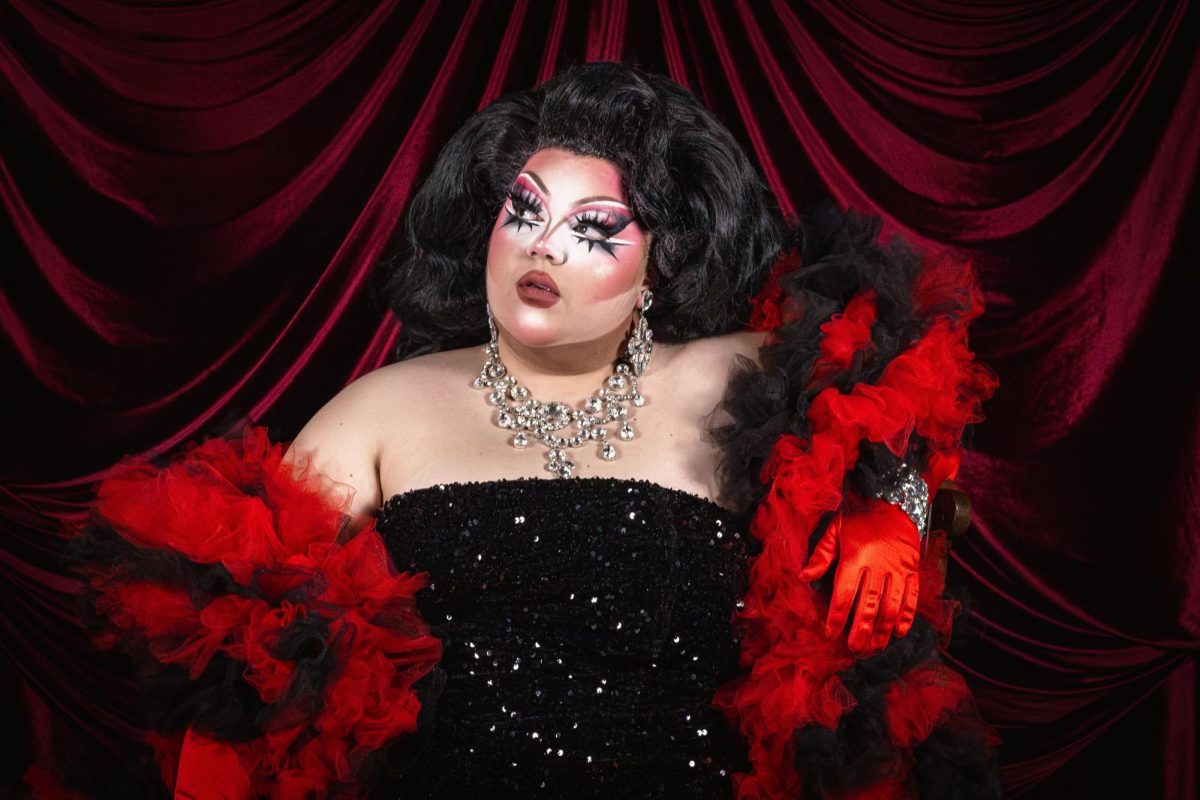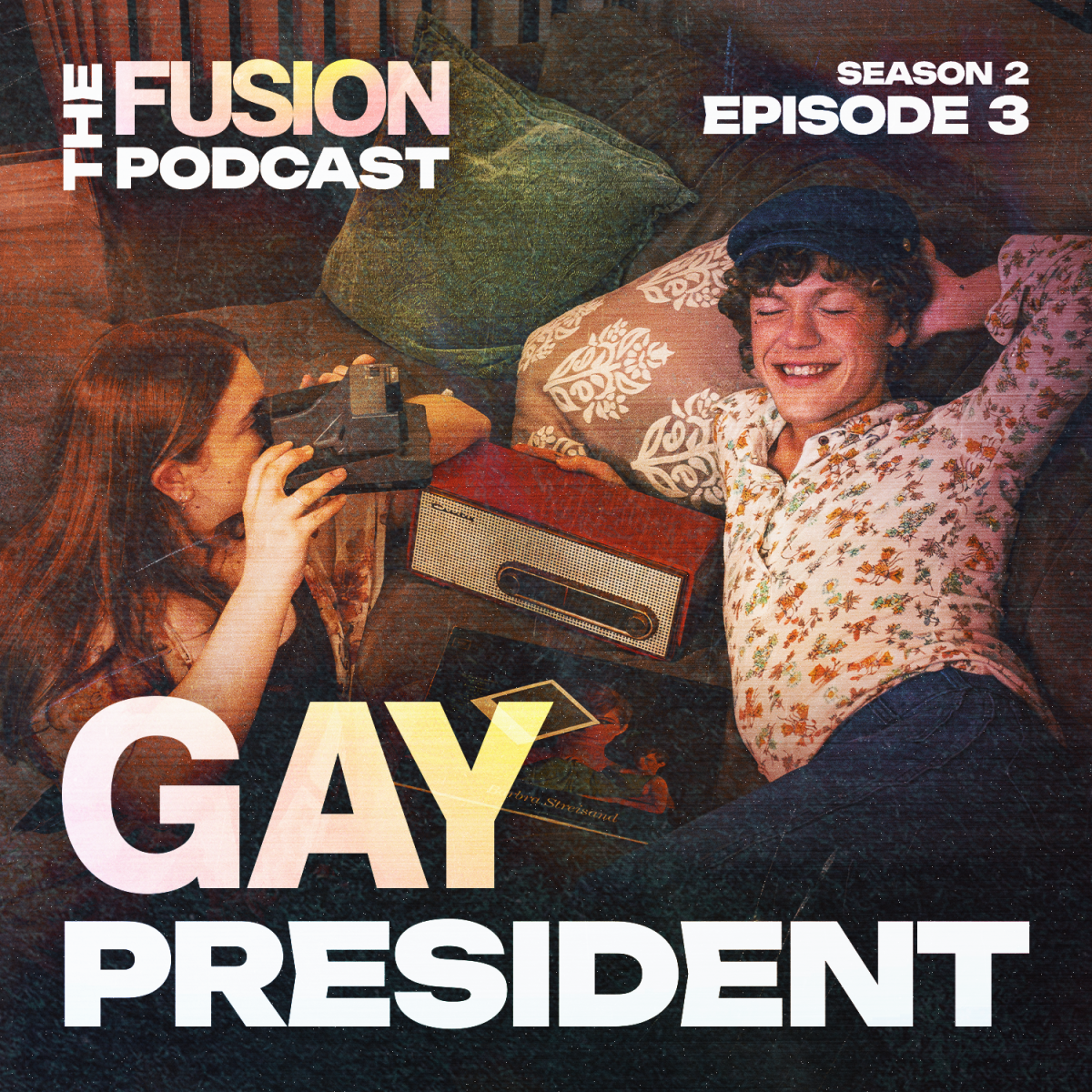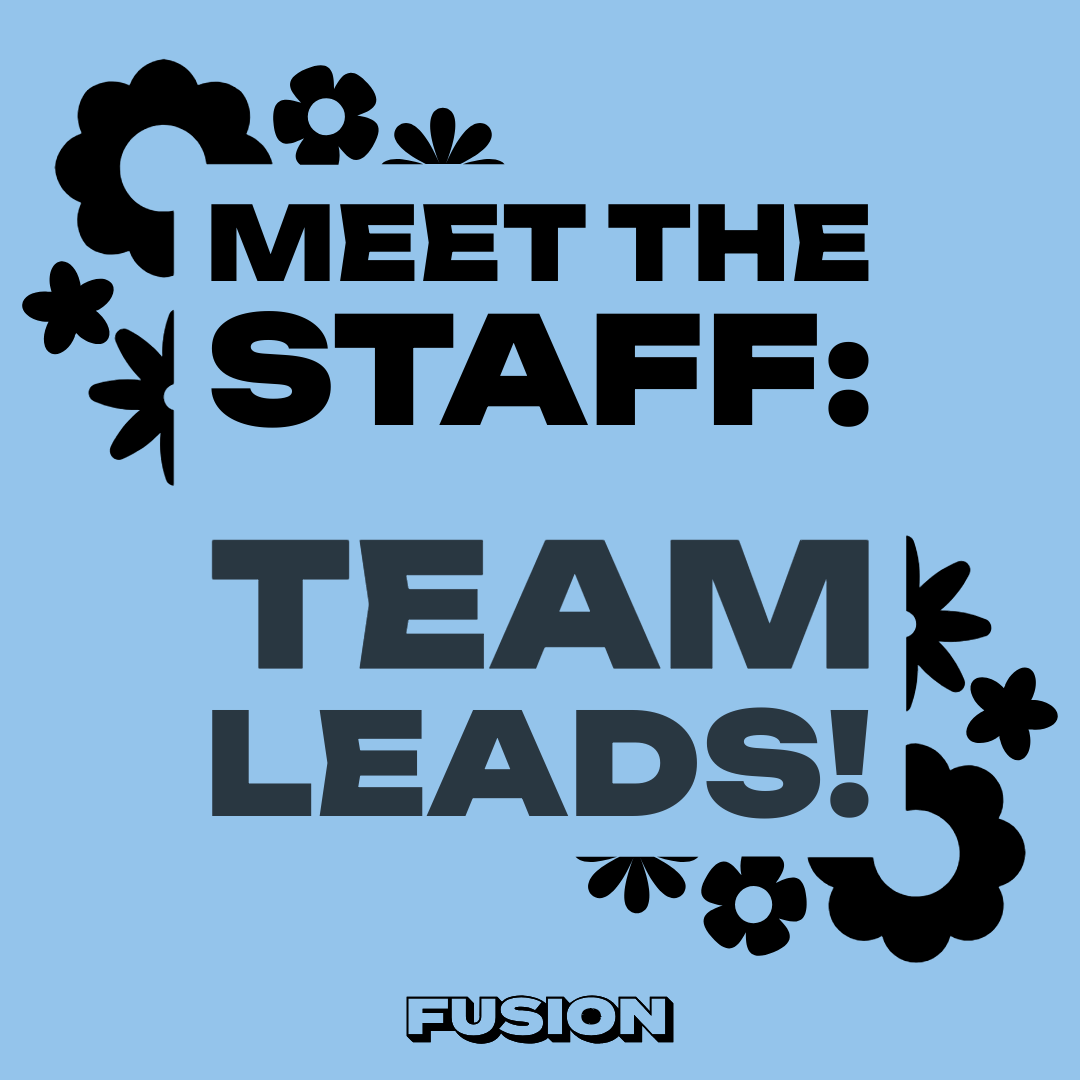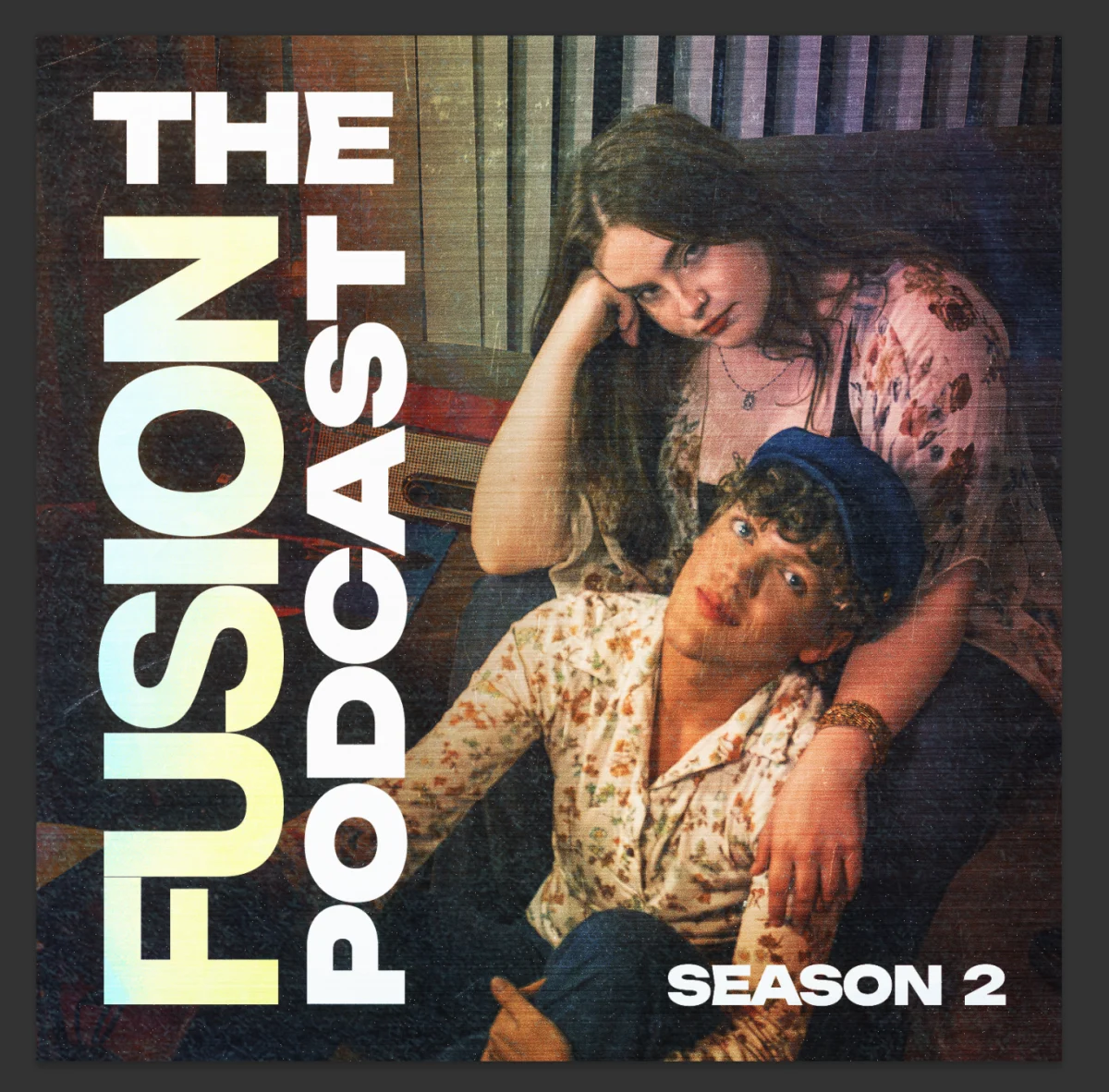While queer representation has been growing in the media, queer people in the midwest still struggle to find representation in everyday life, lacking older queer couples to look up to and ask advice from. Two older queer couples sat down to discuss what it was like growing up as a gay person in the midwest in the 80s and 90s and to offer their stories and advice for the younger queer generation.
The first couple interviewed was Jay Sloan, a professor at Kent State, and his husband Herman Guy. They described the uncomfortable atmosphere around gay people in the 80s and 90s and how this tension affected their coming out.
“There was just a lot of oppression against gay people,” Sloan says. “So I just kind of kept it all bottled up and didn’t really think about it, didn’t talk about it. I was probably college age before I started moving a little bit. But I was in my early 30s before I actually came out of the closet. Not a pleasant place to be queer in the late 70s early 80s.”
“Well, there wasn’t really a pleasant place to be gay then,” Guy adds. “Well, maybe a big city, San Francisco, New York. I grew up in East Palestine, Ohio and I was deeply closeted.”
Sloan and Guy met in their thirties and quickly committed to each other. Over the course of their relationship they witnessed the legalization of gay marriage and explained what their relationship looked like prior and post-legalization. Like most gay couples unable to officially get married, they exchanged rings as a symbol of their unification.
Guy says, “We moved in together in May of 2001. Been together ever since. Exchanged rings in 2003.”
“Couldn’t get married, of course, until 2015. But we did do that,” Sloan says.
They described the moment they first received news that gay marriage had been legalized. “We heard the news in Wyoming, of all places,” Sloan says. “We’d stopped for lunch. And there were these waitresses talking back and forth at opposite ends of the restaurant. And one of them yelled to the other, ‘Did you hear that they legalized gay marriage?’ And they cheered. And then we got married that fall in November of 2015.”
“We were the first gay marriage license in Columbiana County,” Guy says, proudly.
When asked what advice they would give to the younger queer generation they expressed the importance of being politically active.
“Vote,” Sloan says, adamantly. “Get politically involved. My students drive me crazy because, you know, most of them tell me they don’t really even pay attention to the news. So that worries me. And then their political apathy really worries me. And most of them are convinced that they can’t really make a difference.”
Guy adds, “And I would tell them your rights can be taken away again. Just because we have these rights now doesn’t mean we’re going to keep them. We had to fight like hell to get them and we’re going to have to fight like hell to keep them.”
Sloan finishes by saying, “You’ve got to be attentive. You’ve got to be involved. You can’t afford to be ignoring this stuff.”
Duane Shoop and Chris Mountain, a gay couple living in California, shared an experience similar to Sloan and Guy’s, growing up queer in the midwest.
“Well, living in Ohio being gay was, you know, not permitted, back in the 70s and 80s,” Mountain says. “You had to hide everything.”
Mountain’s husband, Shoop, says, “Yeah. It was a big secret. You weren’t allowed to talk about it.”
While he didn’t experience direct discrimination based on his sexuality, Mountain says, “It’s kind of social discrimination, because I had to act one way so that I wouldn’t be hurt.” The reality of concealing one’s sexuality in order to fit into a heteronormative society is something that most queer people experience, especially in the midwest. While progress has been made since the 80s in this regard, societal pressure to fit within the heterosexual box still exists and still limits queer people.
Shoop explains a case where he had to mask his sexuality by presenting himself as a straight man. “When I would win company trips, I used to take a girl with me, because if I were to take Chris, that would have been so problematic.”
“He did take me one time,” Mountain says.
“And it was horrible,” Shoop says. “Because I brought Chris, people were saying bad things about me. Yeah, so there’s definitely discrimination. And that was back in Ohio. Never experienced anything like that out here. Although it existed.”
Despite the social discrimination they faced, Shoop and Mountain have been together for 42 years. The couple was asked how they’ve managed to maintain a healthy relationship for so long.
Shoop says, “You’ve got to compromise if you want a relationship to work. And communication is so important. If you don’t trust your partner, it’s doomed to fail. It’s a lot of give and take. We’ve had our share. I mean, we’ve had some serious problems over 40-some years, but, we’ve worked through them all, and I think it’s because, one, we’re good friends. And we’re brutally honest. Sometimes I don’t think we have to be as honest as we are, but it’s better to be more honest than deceitful, because, you know, once you’ve lost trust in the person you’re with, it’s really hard to ever get that back.”


